

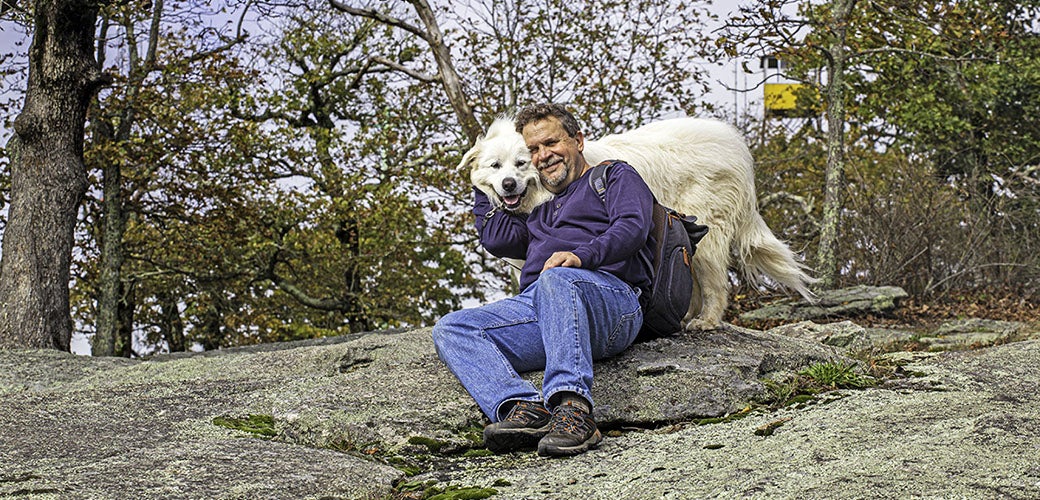
On Sunday April 26, a three-year-old Great Pyrenees named Ripley visited the ASPCA Spay/Neuter Alliance (ASNA) in Asheville, North Carolina, with her owner, Stan S. Ripley was suffering from a severe bite wound to her ear flap from an encounter with another dog.
A spay/neuter facility may sound like an unusual choice for ear surgery, but to respond to the biggest animal needs resulting from the COVID-19 outbreak, ASNA reinvented itself as an urgent care clinic, which is considered an essential service in North Carolina and allowed to operate.
“We triage urgent cases, treat them if we can, and steer clients toward appropriate services if we can’t help,” says Dr. Melissa “Chip” Saxton, Medical Director at ASNA.
The transformed clinic, open for six days a week and housed in the lobby of one of the buildings, has already treated ailments including ear hematomas, lacerations, abscesses and skin, eye and gastrointestinal issues.
A Very Injured Ear
“Ripley had been involved in a scuffle with another dog the night before and was in a lot of pain,” says Dr. Denise Hugaboom, who handled Ripley’s case. “She didn’t want to eat or drink. The only thing she would let me touch was the outside of her ear.”

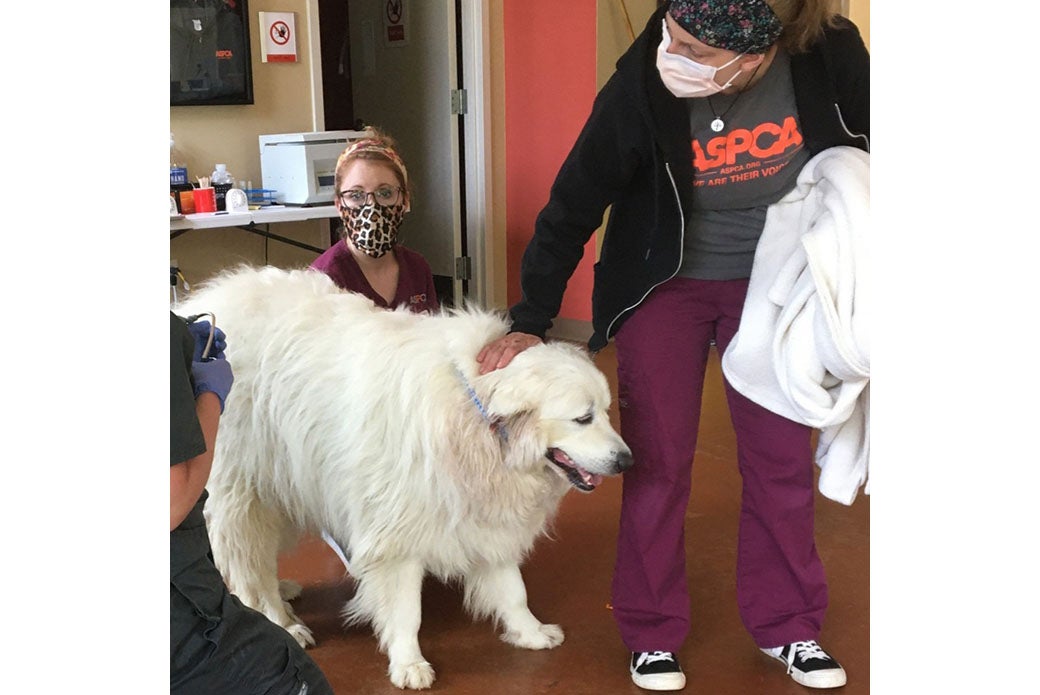
Ripley with Darcie Harrell (standing), Lead Instructor and Rachel Hager, RVT.
After sedating the 120 lb. dog, Dr Hugaboom and her team discovered Ripley’s injury was more severe than they first realized.
“The tip of the flap was a full thickness wound, meaning that the bite went all the way through,” Dr. Hugaboom reveals.
While Stan was present when Ripley was bitten, he, too, didn’t realize the extent of her wound.
“I took her inside and immediately cleaned the ear with peroxide, and we let it go through the night,” he says. “But by 4:30 AM she was pacing and crying. I knew I had to do something.”
Ripley’s surgery included making six stitches placed far apart enough to allow fluid to drain from her ear.

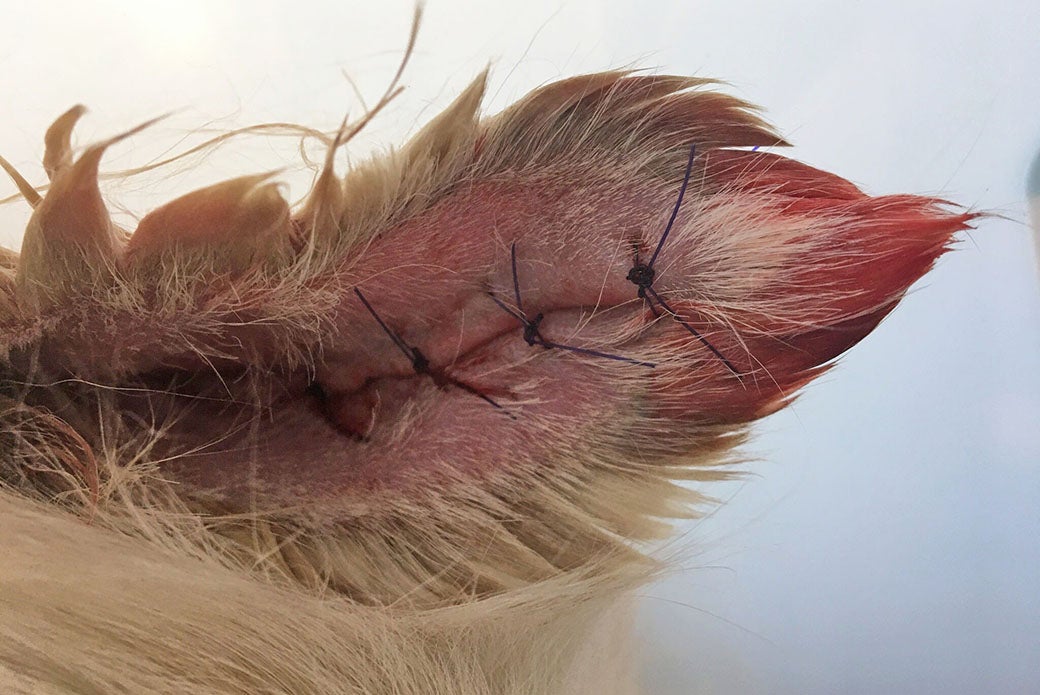
Ripley’s repaired wound
“The ear is a body part that can fill up with fluid if not treated right,” said Dr. Hugaboom, who sent Ripley home in an e-collar but no bandage. “It’s also a tough body part to bandage, especially on a dog.”
Awake but groggy, Ripley went home on pain medication and antibiotics. The following day she was better, and two days later, she was “feeling fantastic,” according to Stan.
Ripley’s Story
Stan adopted Ripley last July from a rescue group in Georgia.
“I’m the first permanent home she’s had,” he says, adding that Ripley had previously been adopted at least twice and returned. He feels they were destined for each other. Even so, it took a good three months for them to bond.
“I work with her through a lot of positive reinforcement,” says Stan, a photographer who lives about a half hour away from ASNA. “I take her on just about every project I go on.”
Stan says that Great Pyrenees are natural wanderers, but wherever Stan roams, Ripley wants to be near, whether atop the Blue Ridge Mountains or at home. “She’s independent but sticks close to me,” Stan tells us. “She follows me everywhere.”

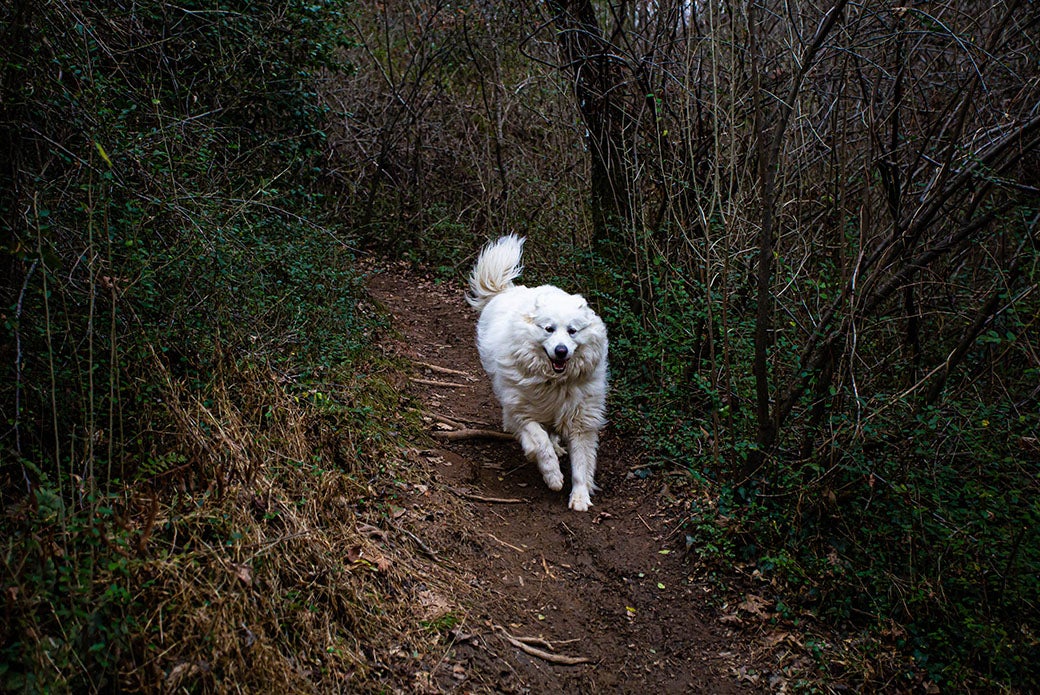
In a gesture of thanks to Ripley’s medical team, Stan and Ripley personally delivered two home-made cheese pizzas—with plenty of sides and a homemade thank you card—to ASNA a week after Ripley’s surgery.
Most of Ripley’s team was present, including: Dr. Hugaboom; Dr. Lindsay Henschel, Medical Director at ASNA; Morgan Holbrook and Rachel Hager, Registered Veterinary Technicians (RVT); Darcie Harrell, Lead Instructor at ASNA; and L.J. Norris, Director of Medical Support Staff.

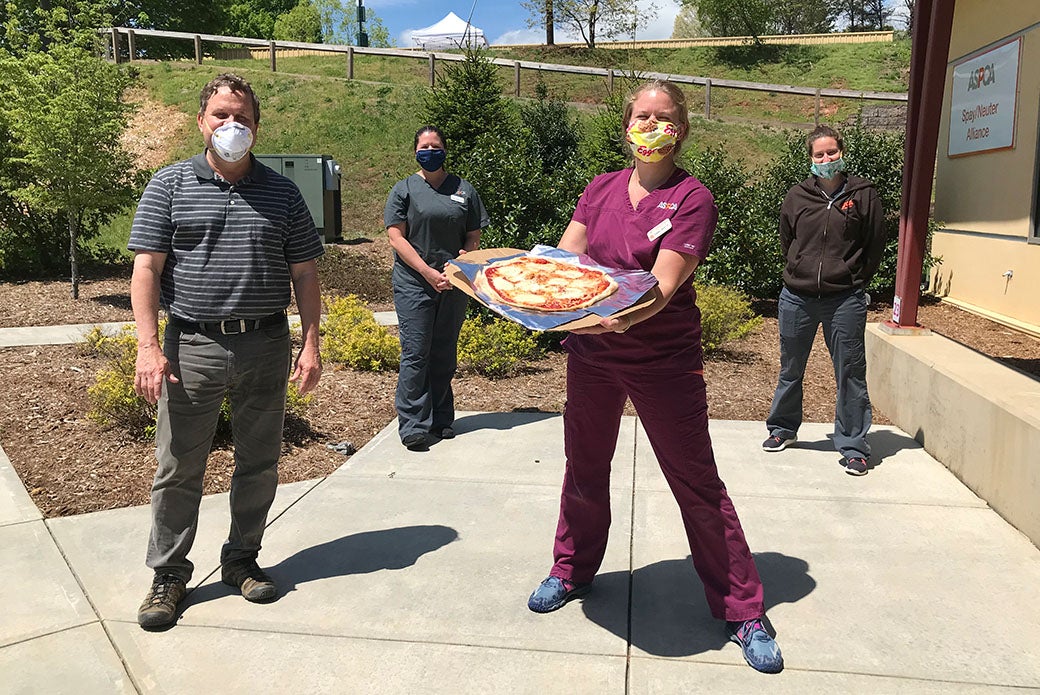
Clockwise from front right: Caitlin Wolf, RVT, holding pizzas; Stan, Ripley’s owner; Dr. Lindsay Henschel, an ASNA Medical Director; and Dr. Denise Hugaboom, who oversaw Ripley’s case.
The ASNA medical team will see many more animal patients like Ripley as the weeks go on, but for Stan, ASNA was simply the right place at the right time.
“I owe everything to you guys,” he says.

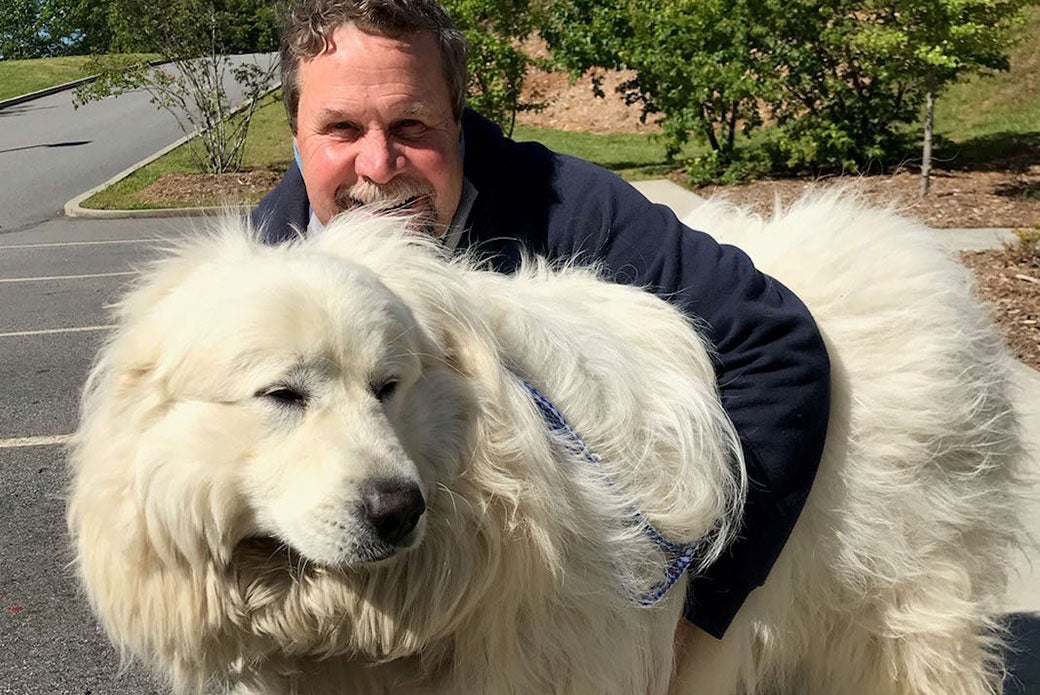
Source: Read Full Article